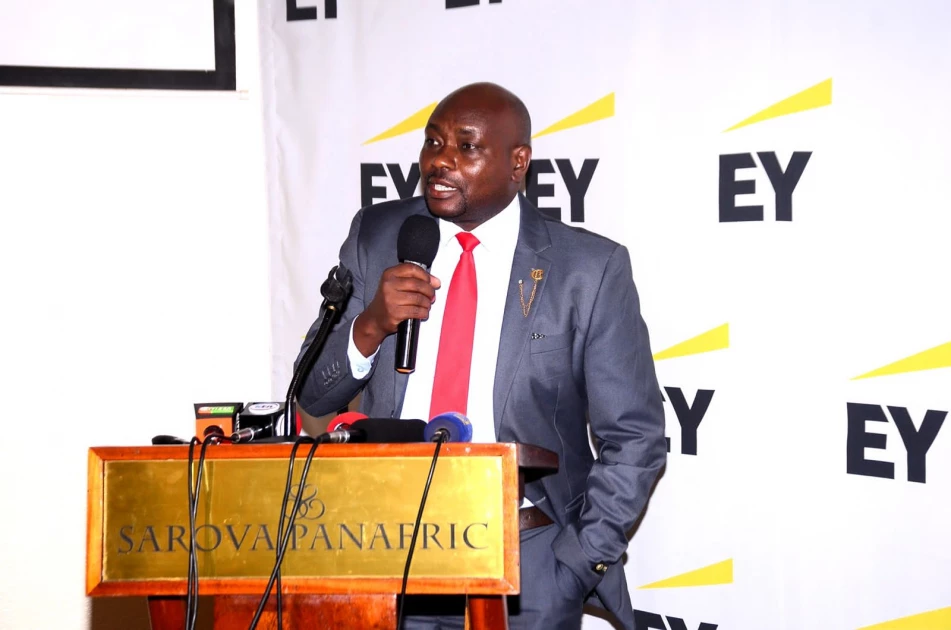Experts urge Kenya to rethink spending, tax policy ahead of 2025/26 Budget

Francis Kamau, the EY East Africa Tax Leader & Partner speaking during the 2025 EY pre-budgeting briefing in Nairobi.
Speaking during EY’s annual pre-budget
briefing, the firm’s Associate Director for Tax, Robert Maina, raised concerns
about Kenya’s persistent revenue shortfalls, questioning whether the government
has been setting overly ambitious budget targets.
Francis Kamau, a senior partner, pointed to
duplicated roles within government, citing bloated structures in parastatals
and persistent inefficiencies that absorb resources meant for development. He
also highlighted resource wastage in key sectors like health and agriculture,
including expired medicines and post-harvest losses, as areas ripe for reform.
‘We must address the widespread duplication
and wastage that drain public resources. Institutions like the National Cereals
and Produce Board need to be streamlined and held accountable” said Maina
On the subject of external support, EY
Partner Robert Nyamu noted that the conditionalities set by the International
Monetary Fund (IMF) should not be viewed negatively. He argued that such
conditions, which include calls for fiscal discipline, are in line with the
country’s own reform needs.
“When you go to the IMF for assistance,
they will ask hard questions—and rightfully so,” Nyamu said. “We cannot keep
avoiding the elephant in the room. Kenya needs to have a serious national
conversation about the size and efficiency of its government. Do we still need
47 counties? Are we over-governed?”
On the tax front, Hadija Nannyomo, EY’s Tax
Partner, noted the IMF’s pressure on Kenya to reduce tax exemptions, which she
argued have largely failed to yield value due to lack of structure and
oversight. She advocated for the adoption of a more strategic tax policy,
urging a revisit of COVID-era tax reliefs that saw revenue collection grow
despite lower rates.
“We need to test the waters with smarter
tax reductions,” she said, pointing to proposals under the Medium-Term Revenue
Strategy to lower VAT to 14% and income tax to 25%. “Reducing taxes can
increase disposable income, boost consumption, and ultimately raise revenue.”
The experts emphasized the need for fiscal
discipline, smarter spending, and supportive tax policies to spur growth,
especially for MSMEs and the informal sector, which remain Kenya’s economic
backbone.
The 2025/26 Budget will be aligned with the
government’s Bottom-Up Economic
Transformation Agenda (BETA), focusing on agriculture, micro and small
enterprises, housing, healthcare, and digital infrastructure. The government
projects total revenue at KSh 3.39 trillion, against an overall expenditure of
KSh 4.26 trillion, resulting in a fiscal deficit of KSh 831 billion. Financing
is expected to come from both external sources, estimated at KSh 146.8 billion,
and domestic borrowing of KSh 684.2 billion.
Want to send us a story? SMS to 25170 or WhatsApp 0743570000 or Submit on Citizen Digital or email wananchi@royalmedia.co.ke
Comments
No comments yet.


Leave a Comment